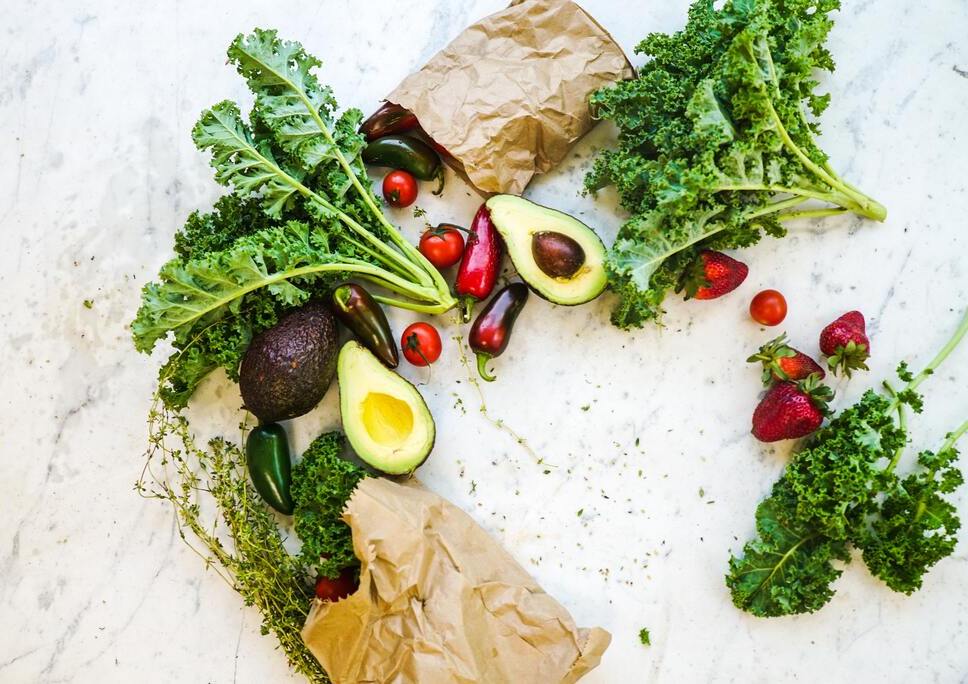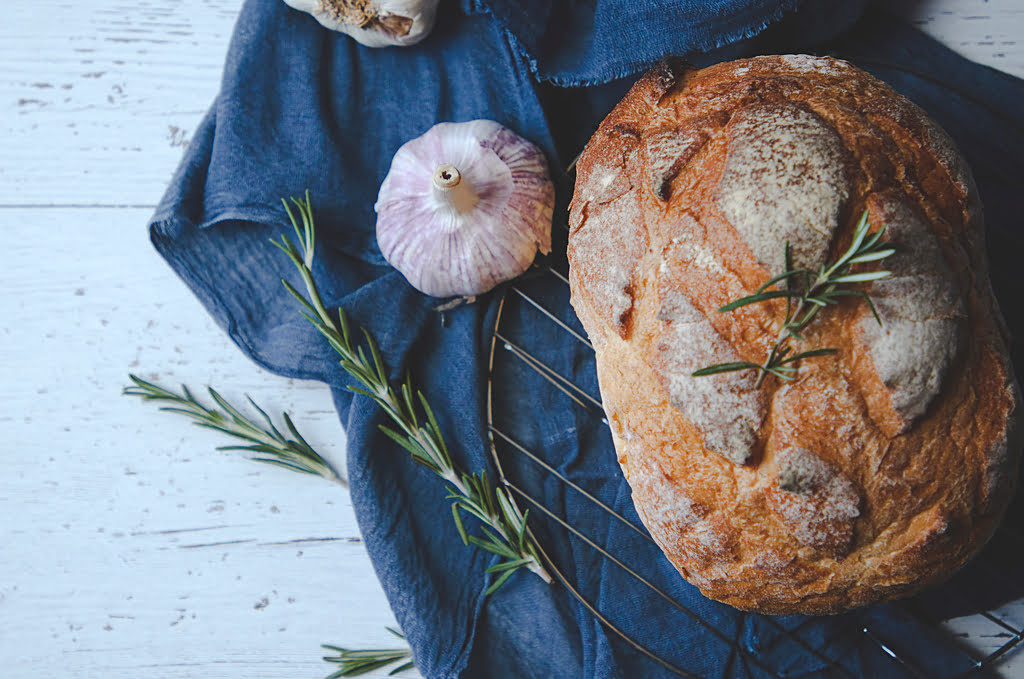How to Keep Produce Fresh
Well, hello there! I am quite excited to share this post with you about keeping your produce fresh for longer. Let’s extend the shelf life the fruits, vegetables, and herbs in your kitchen!
Once a week, I head to the grocery store, list in hand, to buy our food for the week ahead. This list often includes a good 50% of food from the produce section. I take my time, looking through all of my options, picking out the greenest herbs, the crunchiest apples, the firmest squash, doing every test in the book to ensure that all of our produce is the perfect level of ripeness to allow us to enjoy throughout the week.
No brown bananas, no signs of wilting on the lettuce, no molding berries. It’s quite the process, but I eventually find the best of the best available to me, happily bringing these treasures home to my own kitchen. And then, after all that work, they seem to spoil before my very eyes!
I’m sure many of you have been here as well, struggling to make your produce last through the week. That is why I chose to write this post, to give you a guide on the best ways to store and “preserve” the life of your produce for as long as possible, while still allowing you to meal prep accordingly. So, let’s dive in, shall we?
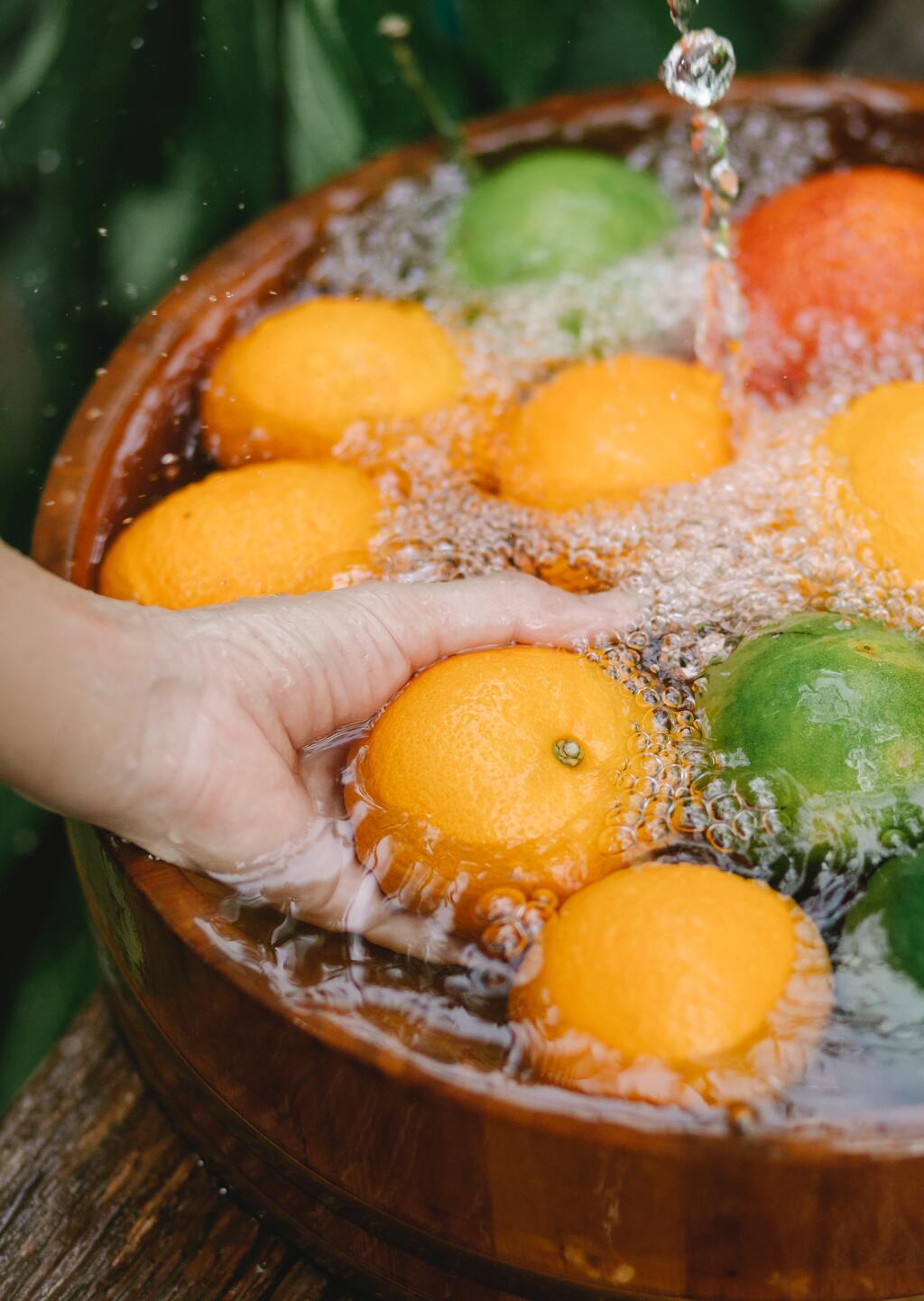
Washing your Produce
All produce should be washed before consuming. A good rinse under cold water will help greatly to clear off dirt and bacteria. You can take it a step by further by giving your produce a bath. Using a 3:1 ratio of water to white vinegar, let soak for 5 minutes, then rinsed with water. Dry completely before storing, toweling off excess moisture as needed. Harder items such as apples can be sprayed with this wash and scrubbed before rinsing.
The Wash Now or Wash Later Dilemma
They say it is best to wash your fruits, veggies, and herbs right before eating them. This is often to “keep from them getting too much moisture”. But honestly, for those of us who like to meal prep, it’s so much easier to wash everything before hand and have it ready to go for the week. Plus, how many of us find ourselves looking for a quick snack, or rushing to make dinner, and accidently skipping the rinsing process all together?
Lastly, lots of produce (such as herbs, lettuce, peppers, carrots, celery) is misted throughout the day at the grocery store. It’s already damp, so washing it isn’t going to introduce any more moisture than it’s already been exposed to.
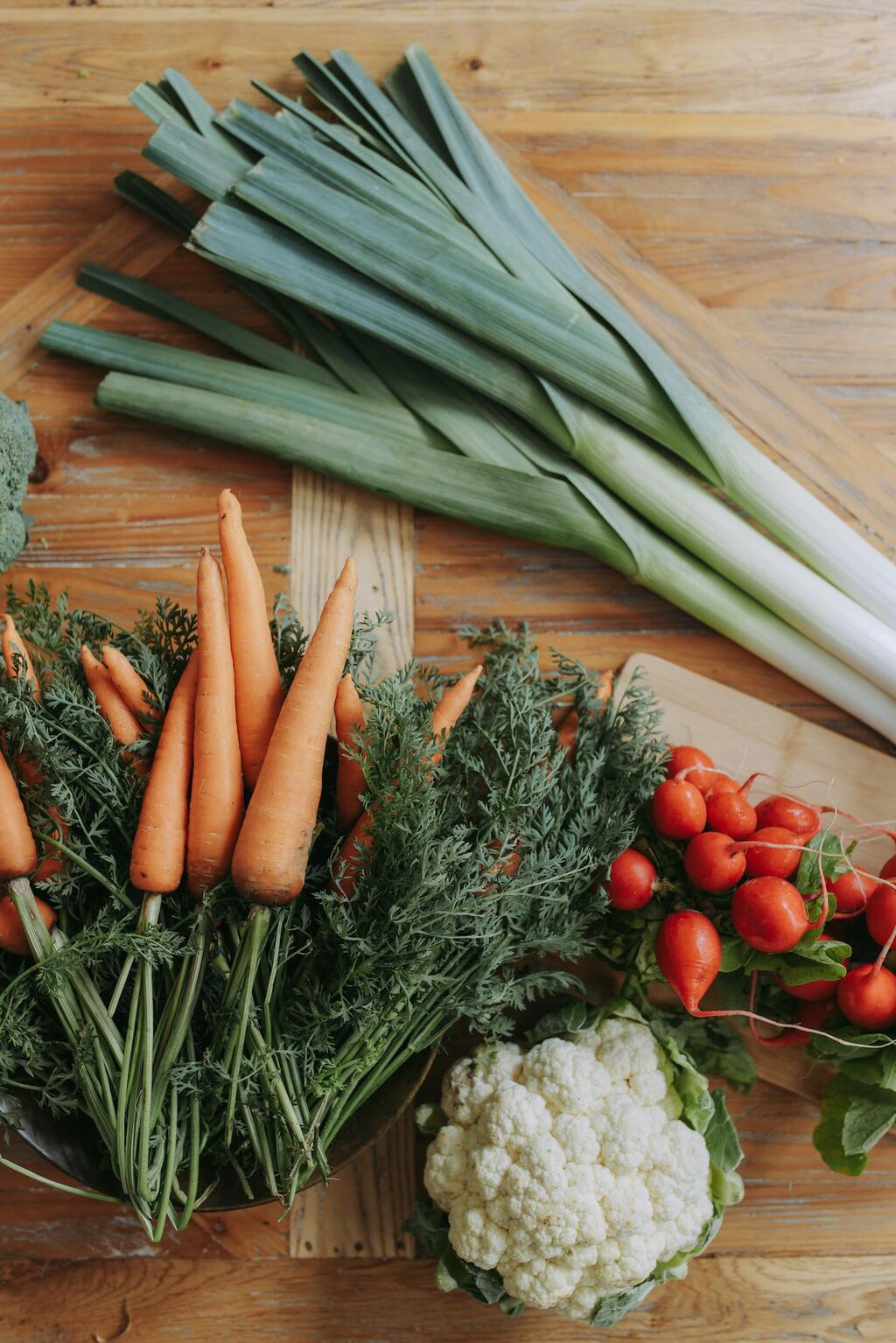
If you are disciplined enough to wash all your fruits and veggies right before you eat them, then by all means go for it. Otherwise, consider doing all the prep right after you return from the store so that everything is clean and ready to eat.
Fully Dry Your Produce
One of the main reasons people say not to rinse your fruit, as stated earlier, is because you don’t want to introduce too much moisture. Well, this is a quick fix. After washing your produce just be sure to dry it before storing it away! Spin it in a salad spinner, let it drainer in the colander, or just lay it in a single layer on a cloth to dry.
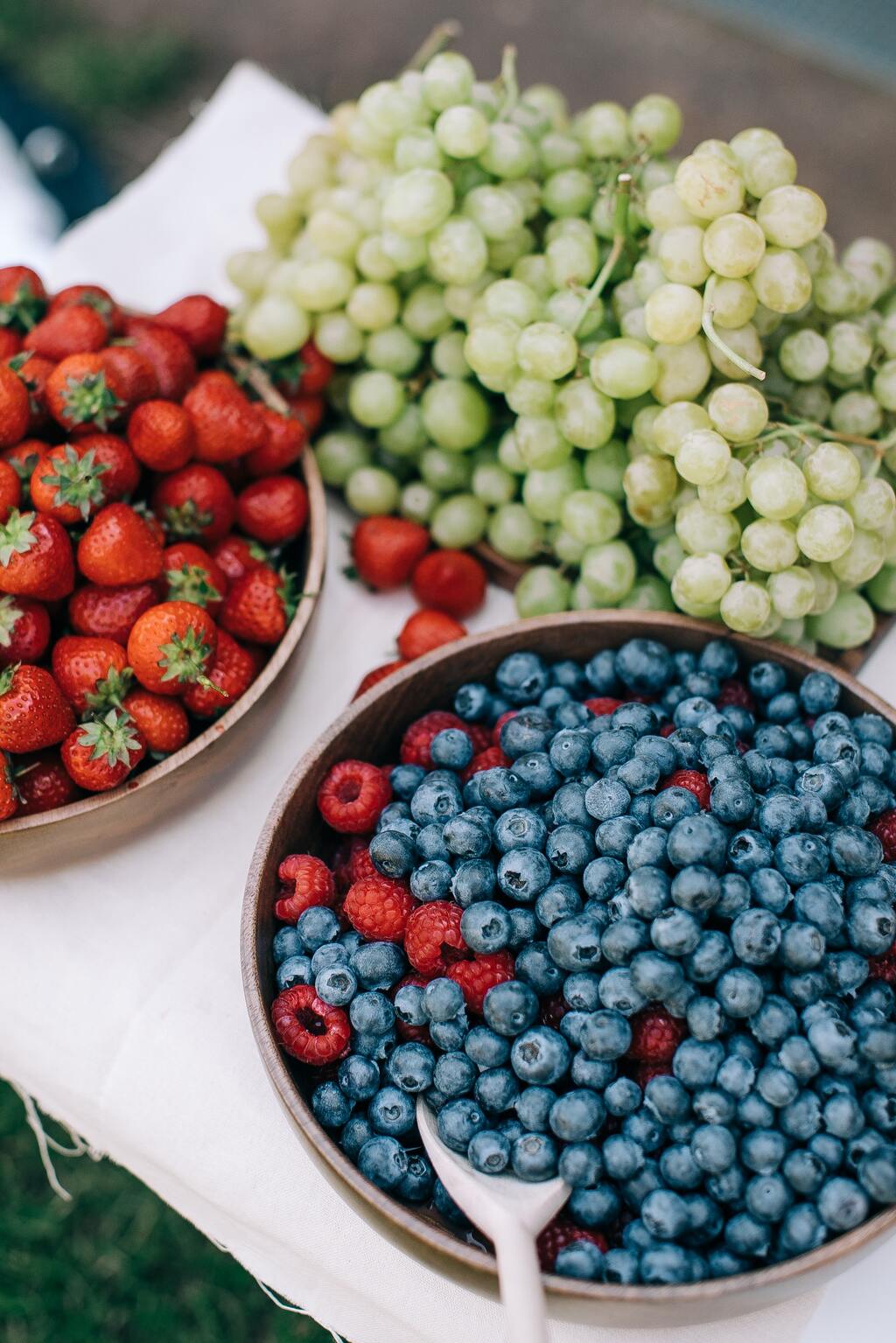
Keeping Produce Fresh
Store Like with Like
Some fruits and vegetables don’t play well with others. This all has to do with ethylene, a gas that some crops emit. Some produce is sensitive to this gas, which can cause it to ripen much faster. Looking for how to know what to store with what? Check out this article. For a nice visual breakdown that’s more thorough, this article here has a large chart displaying what emits ethylene and what is sensitive to it.
High Humidity vs. Low Humidity
In summary, your two crisper drawers should be set at different levels, one at high humidity and one at low. To help keep your produce fresh, the rule of thumb is that fruits should be stored in low humidity and vegetables in high humidity. Although there are some exceptions.
The low humidity drawer is perfect for items that are likely to rot or produce ethylene. Such as apples, pears, stone fruit, avocado, and melons.
The high humidity drawer should be reserved for produce that wilts, has thin skin, or is sensitive to ethylene. This includes things like leafy greens, squash, cucumber, celery, asparagus, broccoli, cauliflower, berries, grapes, and cherries.
Most citrus is not sensitive to ethylene, so it can be stored in the crisper drawer with the other fruit, or in the main part of your fridge. Lemons and limes, however, are sensitive to ethylene and prefer higher humidity than other citrus fruits. For more information on crisper drawers, check out this article here.
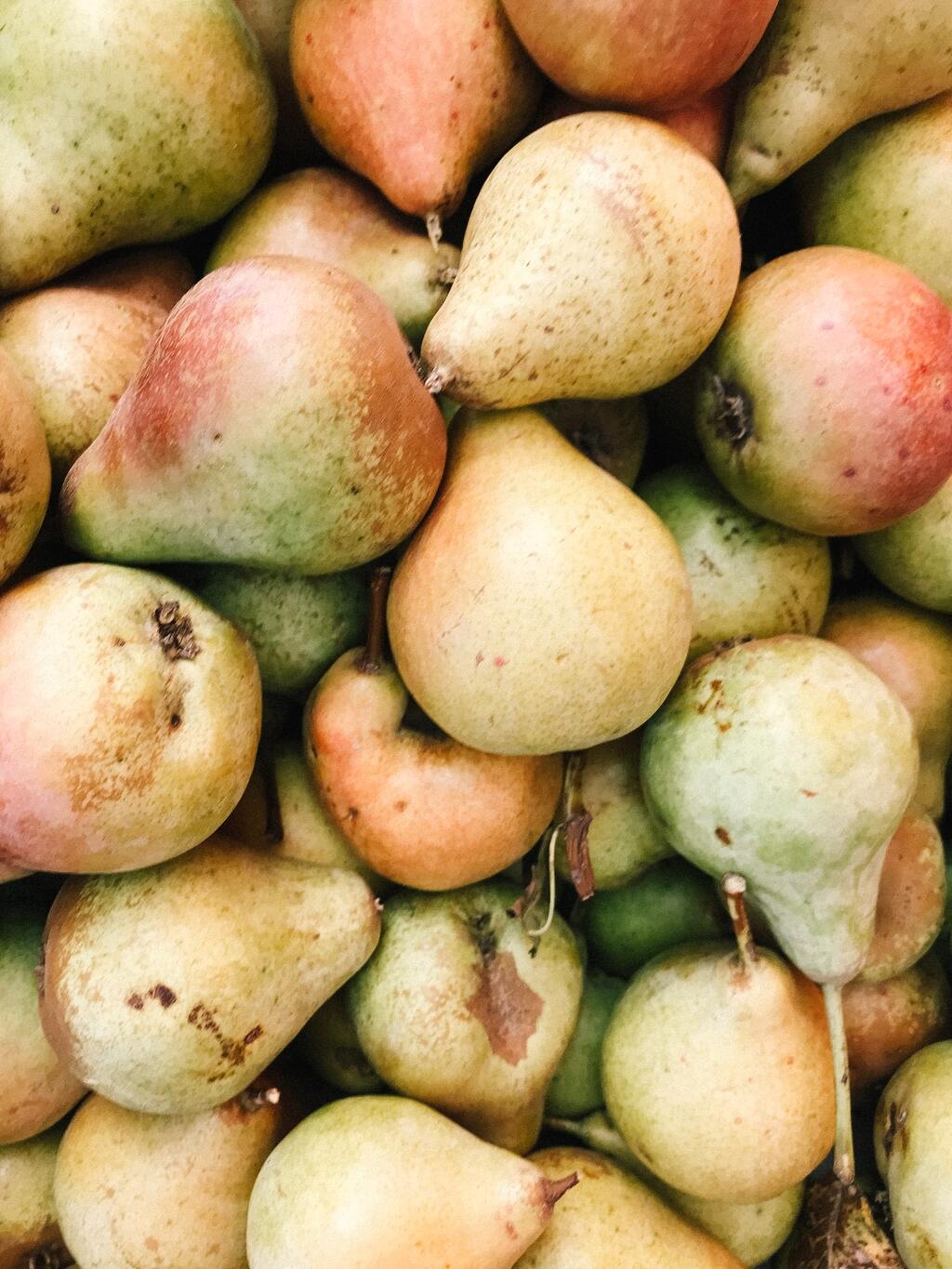
Fruits to let Ripen before Refrigerating
- Melons
- Kiwi
- Avocado
- Pears
- stone fruit:
- Apricots
- Peaches
- Nectarines
- Plums
- Papaya
- Mango
After these items are ripe, they can be stored in the fridge to help prolong their shelf life. Recommend bringing to room temperature before eating to for strongest flavor.
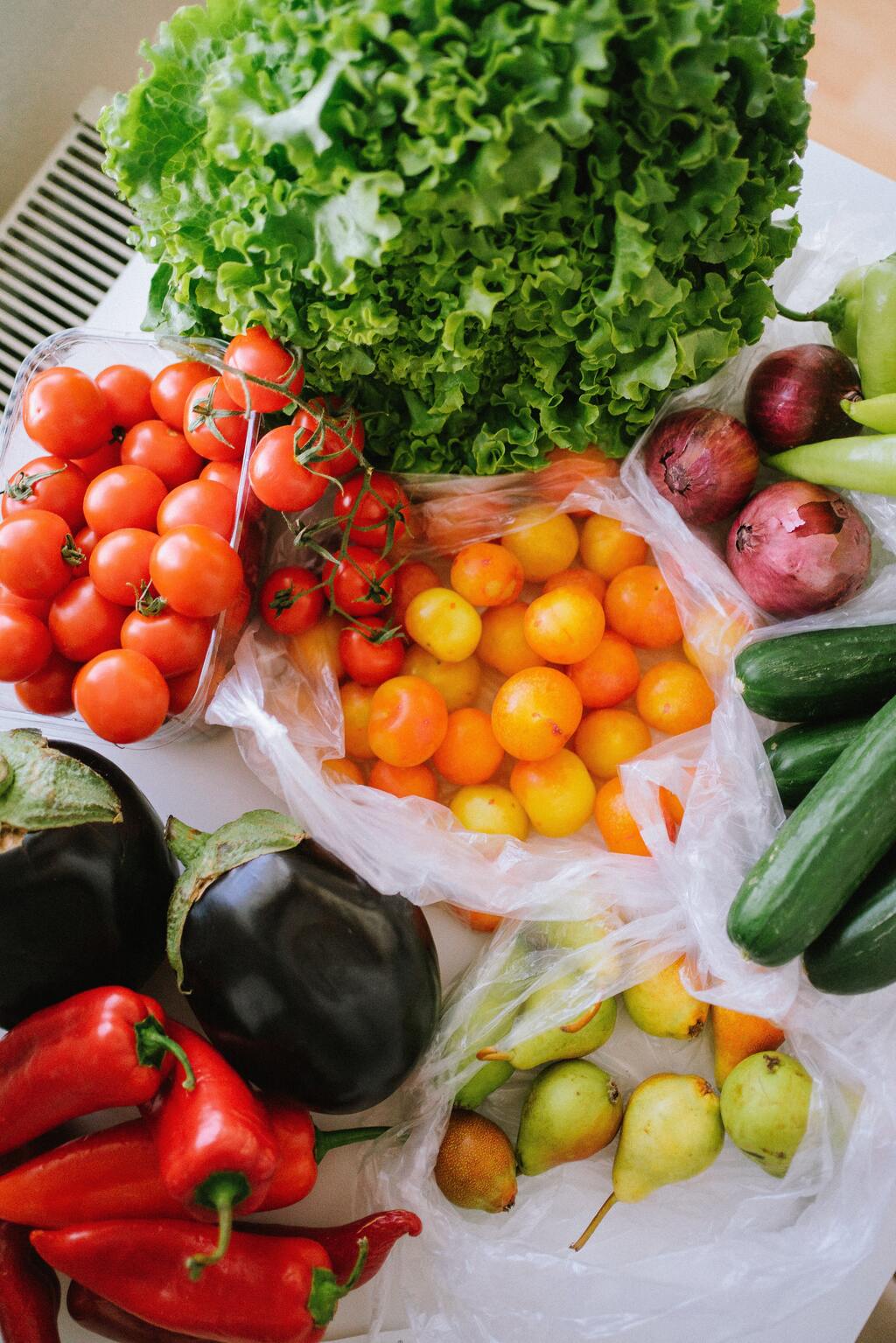
What I Mean by "Breathable Bag"
This can be a mesh bag, a paper bag that is left loose at the top, or a plastic/Ziploc bag that is not fully sealed. The purpose it to allow air flow into the storage bag so that the humidity in the crisper drawer can reach the produce. This will help with keeping your produce extra fresh.
Produce to Keep Fresh in the Fridge
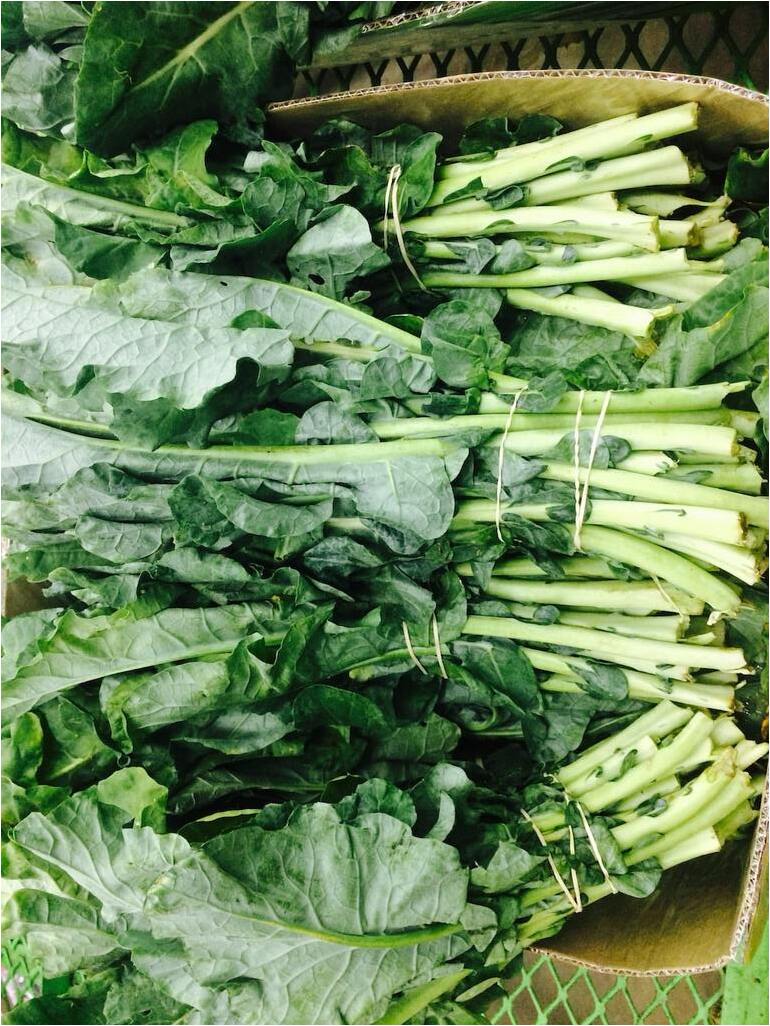
Leafy Greens
Leafy greens include lettuce, kale, arugula, spinach, and salad mixes, to name a few. We buy a big container of baby spinach each week to use in salads and as a protein boost in things like smoothies, omelets, and bowls.
Leafy greens should be rinsed, dried, and wrapped in dry paper towels. The towels will help to soak up extra moisture that often leads to lettuce going soggy.
If it’s a box or bag of mixed greens, sort through the mix, discarding any wilted or slimy bits. These are usually pre-washed so you do not need to rinse them again. Before putting the greens back in a container (we prefer to use the one it came in), line the bottom with a paper towel. From here alternate 2-3 layers of greens with paper towels, ending with a towel on top. With bagged lettuce, just slip a few towels around the bag and seal it shut.
With all greens, be sure to check the towels every couple of days and replace them as they get wet. Reusable towels can be used in place of paper ones.
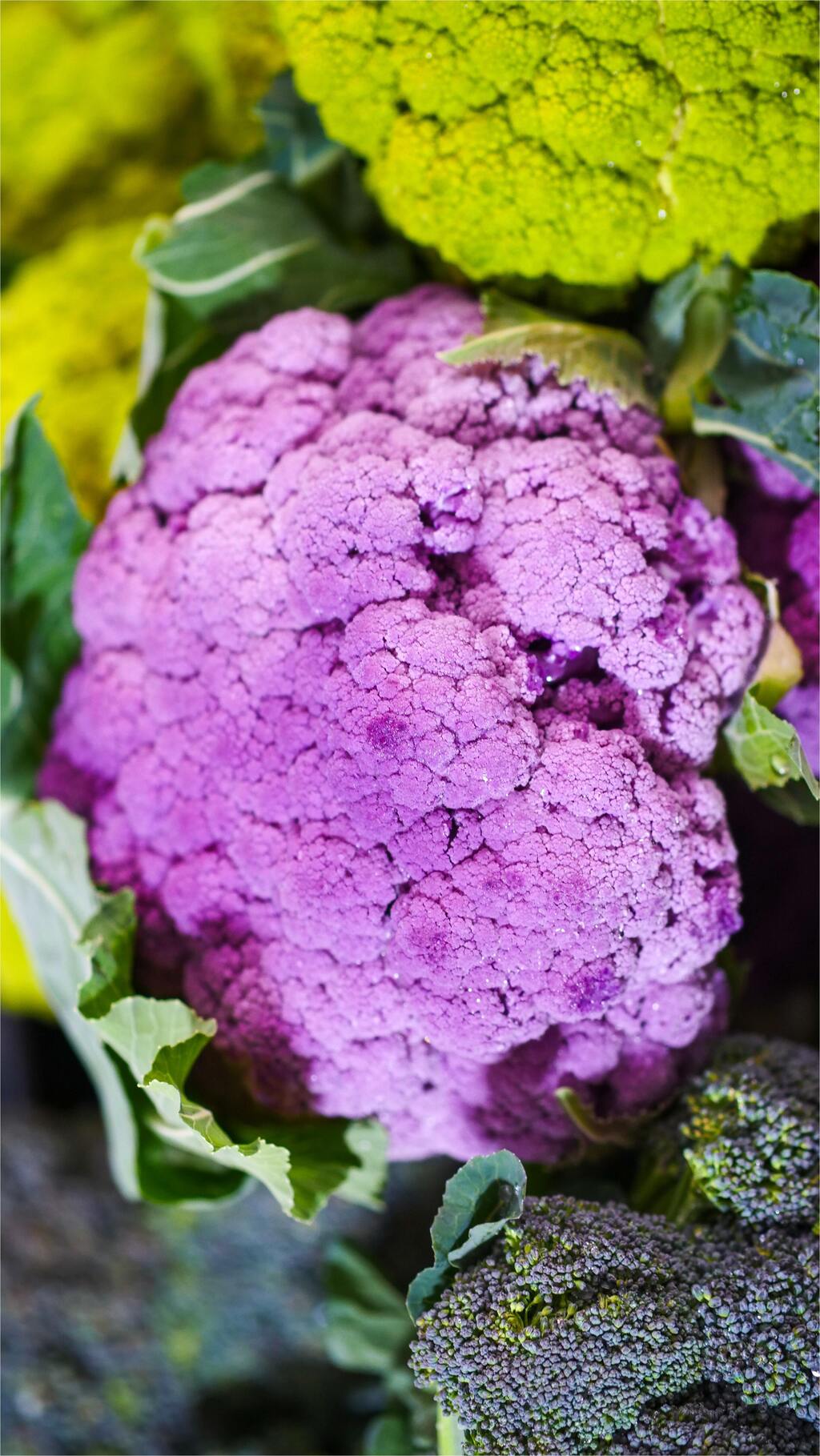
Broccoli, Cauliflower & Cabbage
If you can keep the heads whole, they will last longer. These vegetables like some air, so store them in a breathable bag for some circulation. Washing close to use is also best.
Carrots & Celery
Carrots and celery should be rinsed and store in water inside of a sealable container. This is great because it means that everything is already snacking ready, and the water helps to keep them crunchy. Switch out the water every few days, and dry off the excess moisture before eating.
Not sold on the water storage method? No problem! You can keep your carrots in a breathable bag (the bulk bag they come in will do just fine since it has small holes), and store in the crisper of your fridge. Celery can be left whole and wrapped in aluminum foil, stored in the crisper drawer as well.
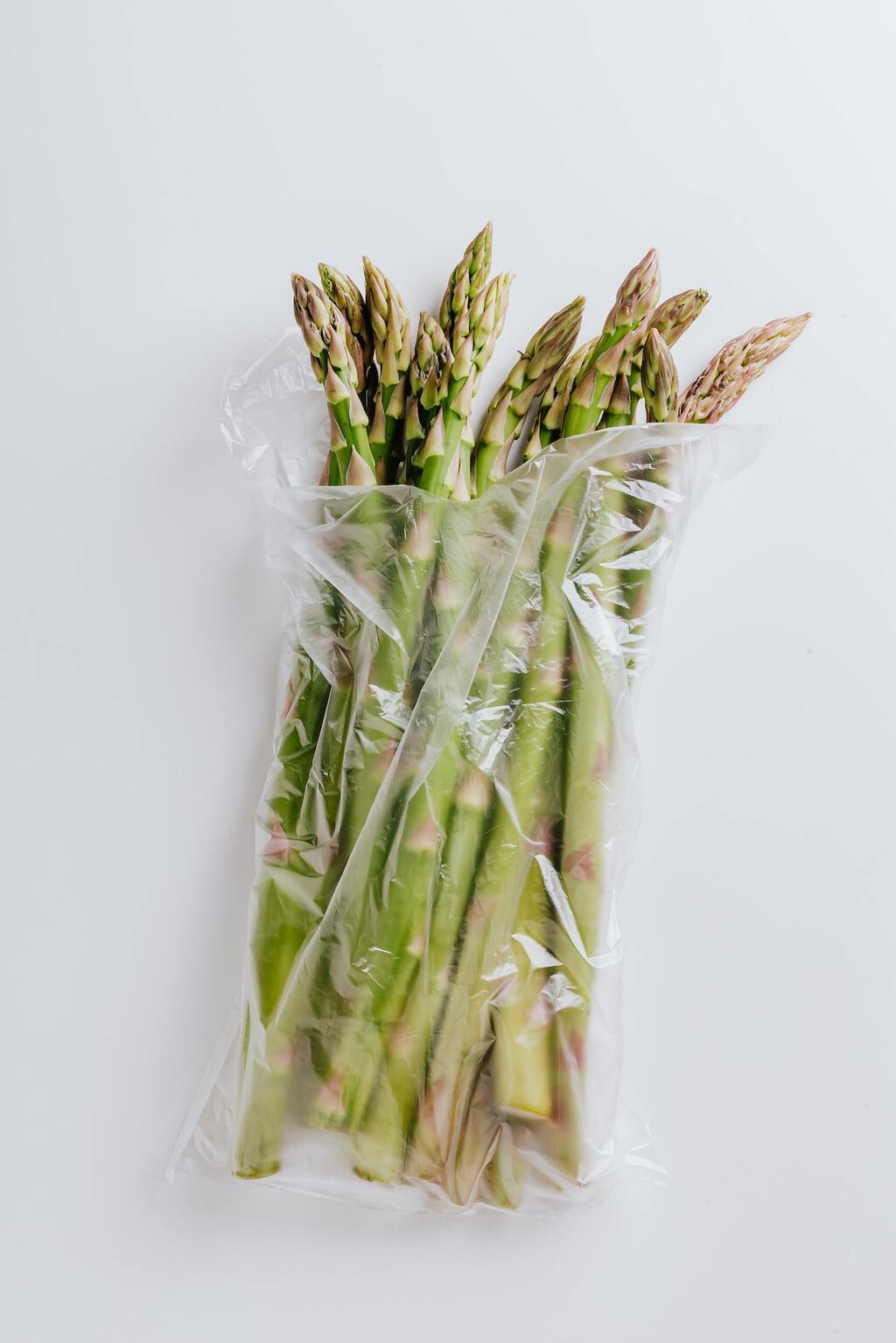
Asparagus and Green Onion
Many times we find ourselves without much open fridge space, and if you frequently have this problem as well, you can seal both of these items in sealable bag with a damp paper towel or cloth wrapped around them to help keep that humid environment that they prefer. Keep them in the crisper.
If you happen to have plenty of room in that fridge, store these items upright in a cup of water. Sounds weird, I know! But if you trim off the bottom (that white section on the ends) and put it in a jar or glass they will keep longer. You can take it one step further by covering them with a plastic bag to help keep a humid environment. Be sure to change the water every couple of days.
Peppers
Peppers do best when kept in the crisper. The added humidity will help keep them firm and prevent them from drying out too fast. Because of this, they do best when stored in a breathable bag.
Summer Squash
Summer Squash, such as zucchini and yellow squash, also thrive in the crisper, in a breathable bag.
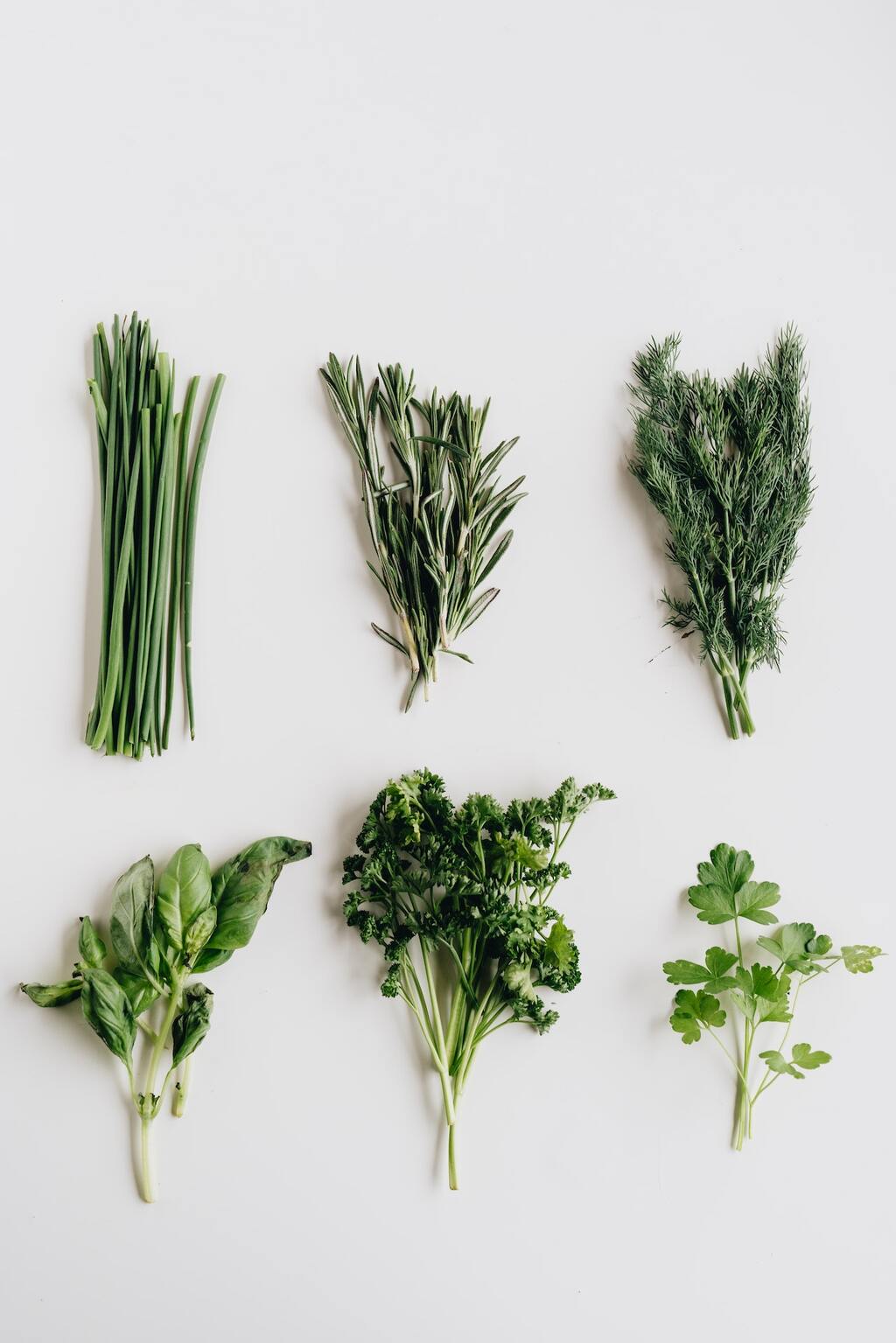
Herbs
Clean and rinse herbs, removing any ties from the bunches, and let dry. Wrap them in a dry paper towel or cloth and place in a sealed plastic bag. Alternatively you can store then in a jar with water in the fridge, preferably covering them with a bag to help retain moisture.
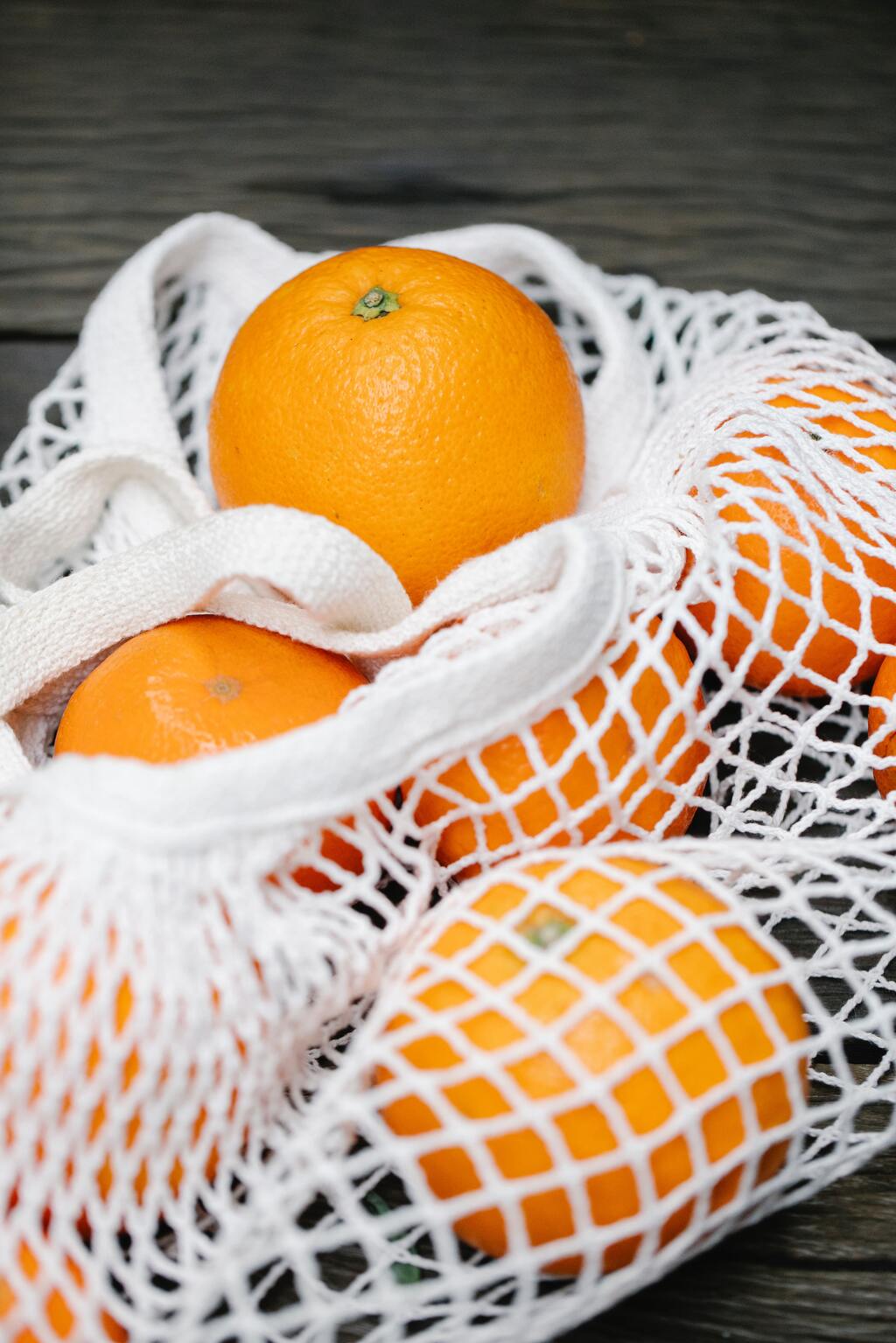
Citrus
Oranges, tangerines, grapefruit, lemons, limes. No matter the citrus fruit, it will keep longer if you store it in the fridge.
They should store in the crisper, either loose or in a bag that allows air to circulate, turning them occasionally to help with air flow. Do not pack them too tightly, for they should have some room to breathe.
Lemons and limes, however, do last longer if they are kept in a sealed plastic bag. Get all excess air out as you can. If they are zested, wrap tightly in plastic warp before bagging them.
Let citrus get to room temperature before eating or juicing. Rolling the fruit on the counter before cutting into it also helps to loosen up the juices inside so you can get more out of it!
Apples
Apples last longer when stored in the crisper. Check the fruit of any bruises or soft spots, since these can cause other apples around them to rot faster. Keep them in an unsealed bag that allows circulation. Rotate every few days and check for any bruising.
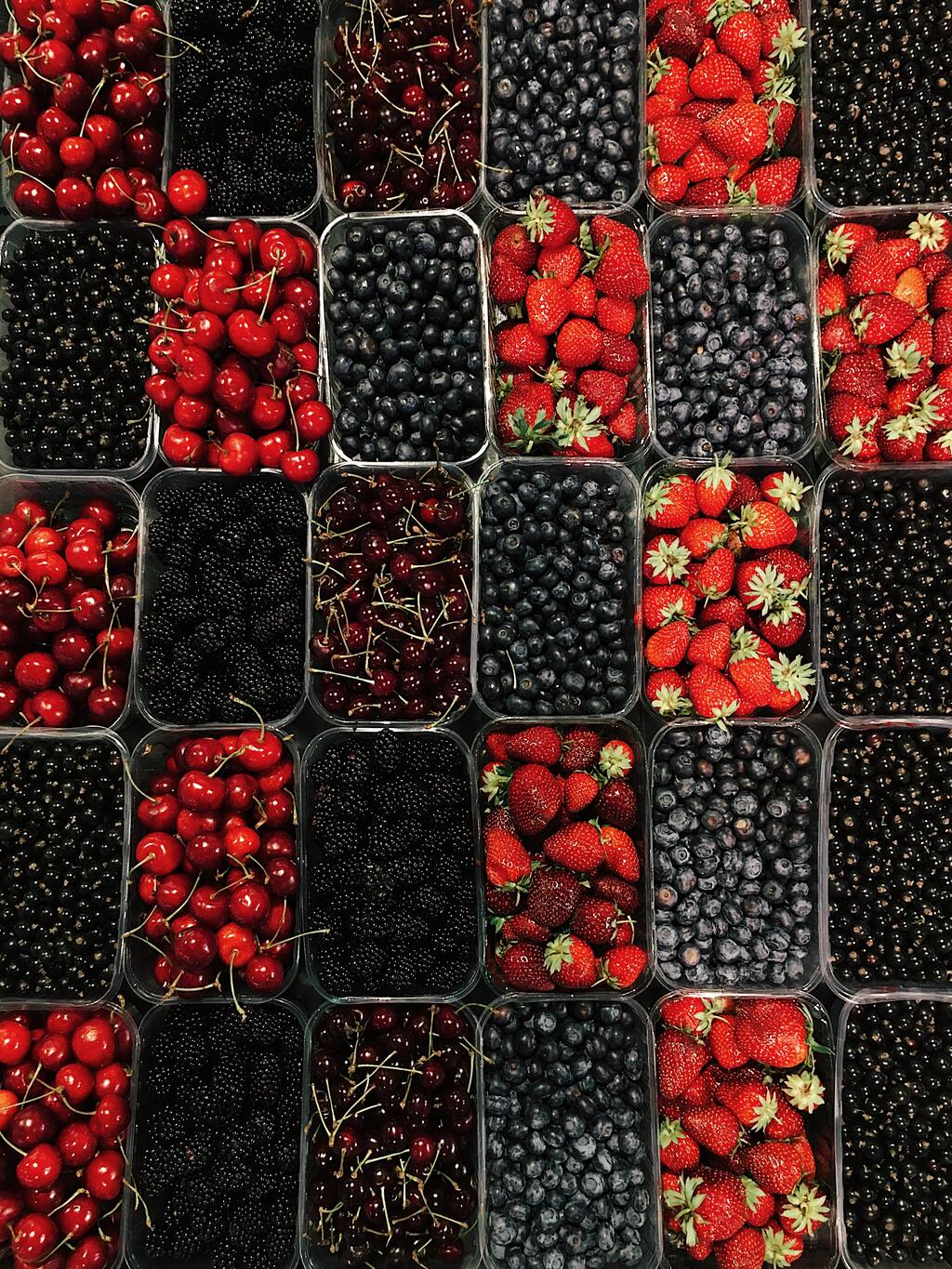
Berries
To help keep berries from molding due to moisture, soak in a vinegar bath and let sit for 5 minutes. Rinse and dry completely, using a towel get rid of any excess water. Berries store well in their original containers (they should have some air circulation). Just be sure to line the bottom with a paper towel or cloth to absorb excess moisture. Replace the towel every couple of days as it gets wet.
Cherries
Like berries, cherries store well in their original containers (or a bowl) with air circulation. Keep the stems on, and add in a paper towel or cloth to help absorb excess moisture (replacing when wet).
Keeping your Produce Fresh
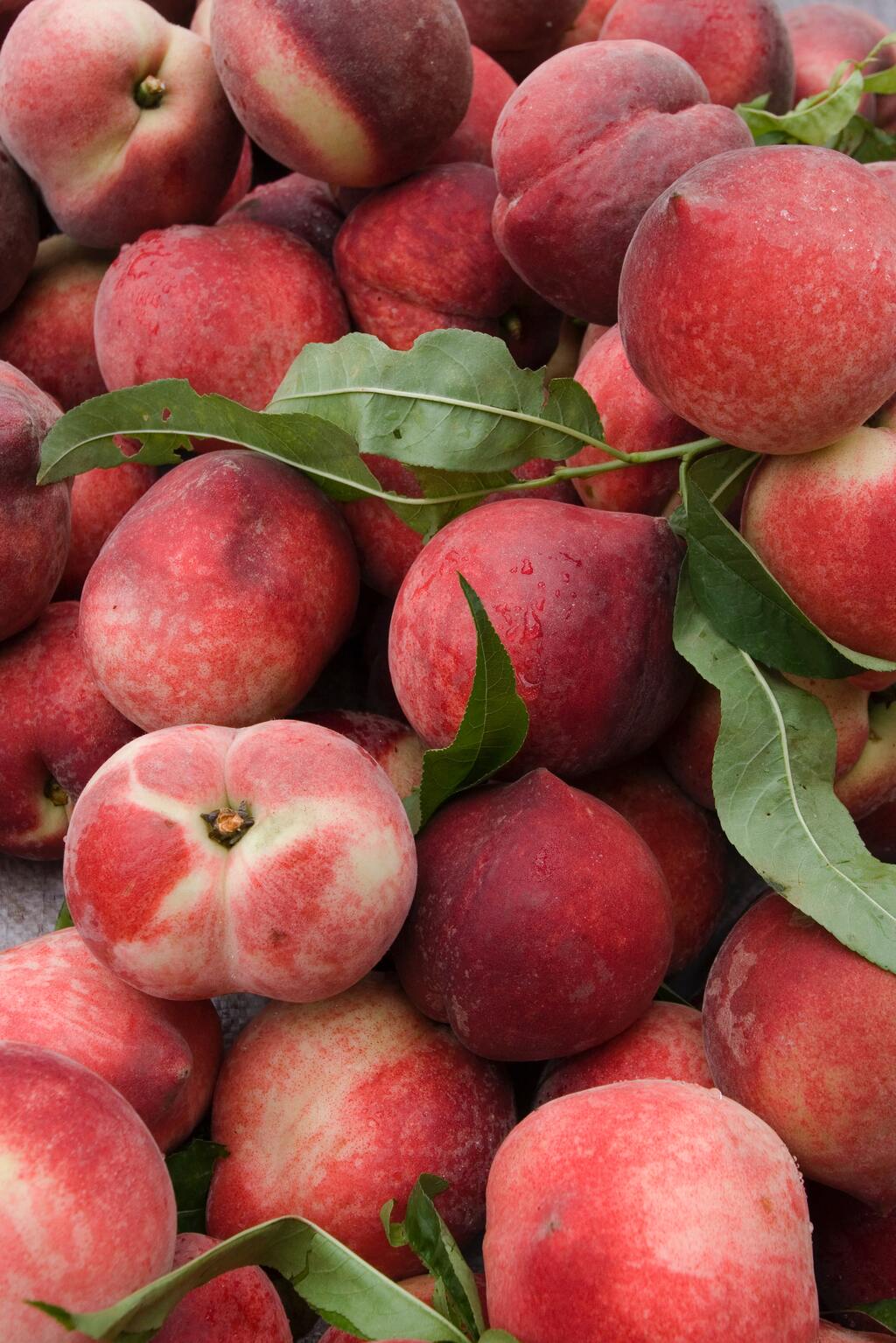
What to Store on the Counter
Unripe Stone Fruit
As mentioned earlier in this post, certain fruit needs to ripen at room temperature before being stored in the fridge. If they are not consumed soon after ripening, putting them in the fridge will prolong the over-ripening process. This includes items such as: apricots, peaches, nectarines, plums, pears, mango, papaya, kiwi, and avocado. You can store these items loose in the fridge crisper drawer.
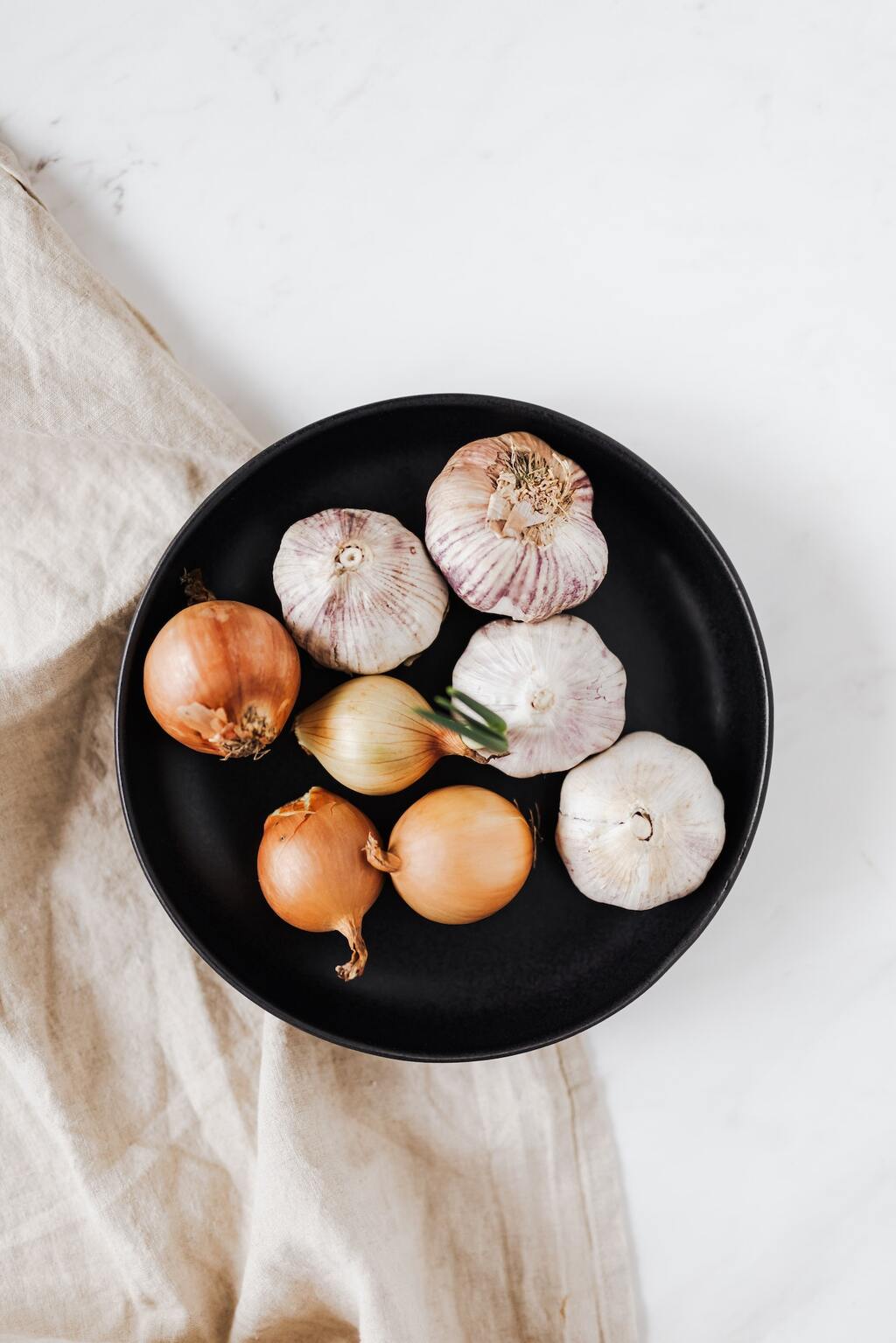
Root Vegetables
Many root vegetables (except carrots) should be stored outside of the fridge. Potatoes, yams, onions, garlic, shallots, these should all be kept in a dry spot out of the sun. Ideally, these would be stored in a cool dry spot, such as a paper bag in a cabinet. Just be sure you don’t forget about them! We don’t store them this way for that very reason, out of sight, out of mind…
Winter Squash
Winter squash includes: spaghetti, acorn, and butternut squash. Store these just as you do root vegetables.
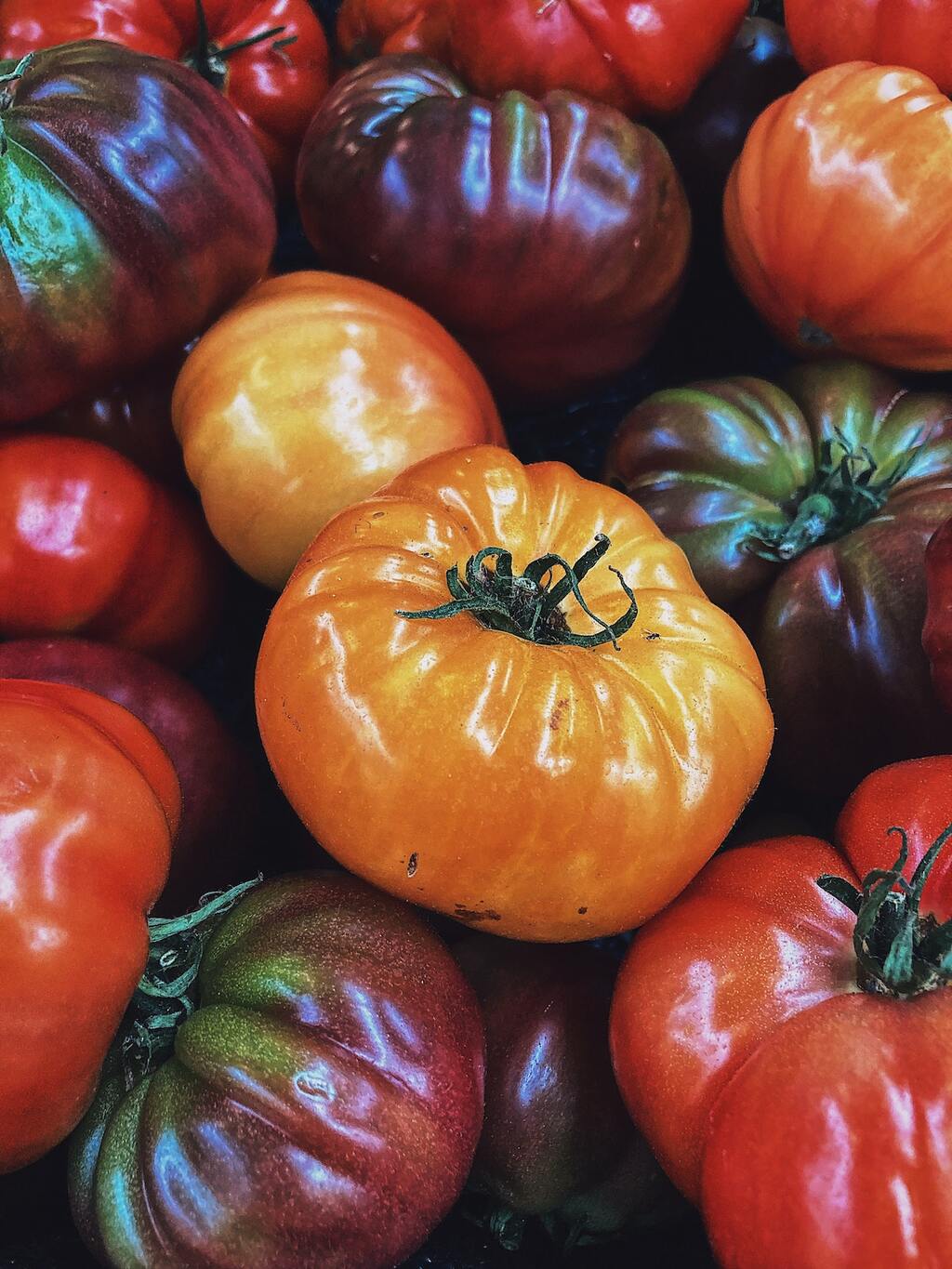
Tomatoes
Tomatoes should be kept in a bowl on the counter, out of direct sunlight.
Happy Endings for Fresh Produce
I have found that these methods have significantly helped us to keep our fruits, vegetables, ad herbs fresh for longer. I hope these produce storing tips are helpful to you in your household as well. Here’s to less food waste, and less trips to the grocery store!
Looking for some other food storage tips? Then check out this post on how to package and store bulk meat. Another great thing to do is always have your pantry stocked for guests. Read about the best ways to do that in this post right here!
